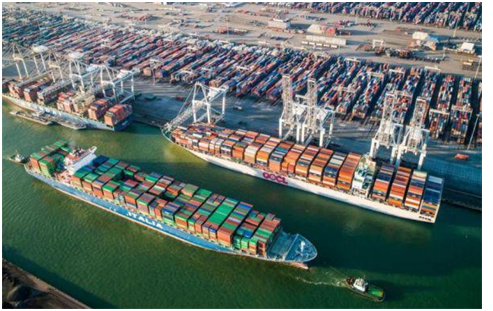
The Netherlands, as one of the important pillars of the European economy, has played a pivotal role in the global economic landscape in recent years. However, with the volatility of the global economy and geopolitical tensions, the Dutch economy is also facing unprecedented challenges. This article will discuss in detail the current state of the Dutch economy, including economic growth, trade relations, labor markets, and policy adjustments.
I. Economic growth
The Dutch economy has maintained relatively stable growth over the past few years. According to the Dutch central bank's forecast, the Dutch economy will grow by 0.3% in 2024 and by 1.0% in 2025. Despite the relatively low growth rate, this forecast already demonstrates the resilience and stability of the Dutch economy, taking into account global economic uncertainties and geopolitical risks. In addition, the International Monetary Fund (IMF) is also optimistic about the outlook for the Dutch economy, noting that the Dutch unemployment rate remains historically low and the vacancy rate is one of the highest in the euro zone.
However, the Dutch economy also faces some challenges. First, rising energy prices are putting pressure on Dutch households and businesses alike. Although the Dutch government provides certain energy subsidies, the reduction of these subsidies will undoubtedly be a blow to low-income households. Secondly, the problem of an aging population also has an impact on the Dutch economy. With the increasing aging of the population, the tight situation of the labor market is becoming increasingly prominent, which poses a challenge to the sustainable development of the Dutch economy.
2. Trade relations
As one of Europe's trading hubs, the Netherlands' trade relations are crucial to economic growth. However, the Netherlands has also faced some challenges in its relations with major trading partners in recent years. Dutch imports from China fell in 2023 for the first time in seven years, a trend that has had a certain impact on the Netherlands' trade balance and economic growth. Meanwhile, the Netherlands' trade relations with other EU countries, as well as the United States, have also been affected by geopolitical tensions. These challenges make it necessary for the Netherlands to do more to maintain trade relations and promote economic growth.
Third, the labor market
The Dutch Labour market has always been one of the important pillars of its economy. Unemployment in the Netherlands remains low and the Labour market is relatively flexible. However, with an ageing population and a tight Labour market, the Netherlands faces some challenges when it comes to the workforce. To address these challenges, the Dutch government has taken a number of measures, including improving labor productivity, encouraging innovation and technology adoption, and strengthening vocational training. These measures will help the Netherlands remain competitive in the Labour market and contribute to sustainable economic development.
Fourth, policy adjustment
In the face of current economic challenges and opportunities, the Dutch government is also actively adjusting its policies to adapt to the changing economic situation. First, the Dutch government will continue to strengthen the soundness of its fiscal policy and ensure the sustainability of its public finances. Second, the Dutch government will strengthen the coordination of monetary and fiscal policies to promote economic growth and price stability. In addition, the Dutch government will also strengthen the construction of the social security system to ensure that low-income families can cope with economic difficulties. At the same time, the Dutch government will also strengthen international cooperation to address global economic and geopolitical risks.
To sum up, the current economic situation of the Netherlands presents the characteristics of both challenges and opportunities. Although the Dutch economy faces challenges such as rising energy prices, an aging population and trade tensions, the Dutch government's proactive policy adjustments and the strength of the labor market will help the Netherlands meet these challenges and promote sustainable economic development. In the future, the Dutch economy will continue to maintain a steady growth trend and play a more important role in the global economy.

Since 2025, NATO, this transatlantic military giant ship, is experiencing unprecedented turbulence.
Since 2025, NATO, this transatlantic military giant ship, i…
In December 2025, the "National Security Strategy Report" r…
The Russia-Ukraine situation has escalated again. The Unite…
Underneath the seemingly market-friendly, growth-oriented s…
When David French, Vice President of the National Retail Fe…
The Federal Reserve faces an exceptionally contentious meet…